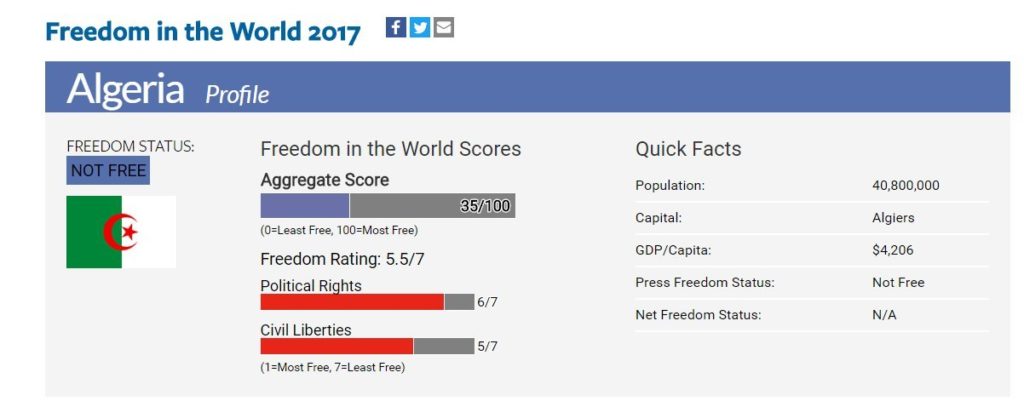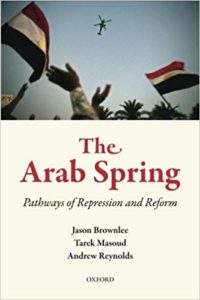
Credit: Arab Center
Algeria is only the latest country in the Arab world to manifest the symptoms of deep political malaise and corresponding public discontent, says Leslie “Les” Campbell, Middle East and North Africa Director, National Democratic Institute. He offers timely analysis on the anger across the region over the arrogance and impunity of political, military, and economic elites, calling them reminiscent of the restive mood in 2010 and early 2011 for the Project on Middle East Democracy.

POMED
U.S. proposals intended to steer Algeria toward a more certain political trajectory and away from potential instability should be restricted to indirect initiatives and will mostly involve working through other interested parties, such as France and Italy, says a Council on Foreign Relations Contingency Planning Memorandum:
Preventive measures should be designed for the long term, beyond the immediate contingency. They should aim to help alleviate social pressures by contributing to Algeria’s economic growth and forging stronger ties in Algeria to better anticipate the country’s political trajectory. These measures should include supporting the Algerian electoral process, encouraging economic reform through diplomacy and communication, working more closely with Algeria’s neighbors in North Africa and with European allies, and improving the United States’ understanding of the inner workings of the Algerian political system.
 Across the Middle East, civil society organizations, human rights defenders, and press freedoms are increasingly under attack, notes Adria Lawrence, the Aronson Associate Professor of Political Science and International Studies at Johns Hopkins University.
Across the Middle East, civil society organizations, human rights defenders, and press freedoms are increasingly under attack, notes Adria Lawrence, the Aronson Associate Professor of Political Science and International Studies at Johns Hopkins University.
Similarities across cases do not prove that diffusion has taken place. The resurgence of repressive authoritarianism could be entirely domestic in origin, as leaders respond to local conditions using tried-and-true tactics out of the autocrat’s playbook. But the ubiquity of such tactics, as well as their timing, suggests that domestic factors may not be the sole triggers. Instead, the international climate may be emboldening brutality in the region, she suggests for the Washington Post’s Monkey Cage.
 Yet repression no longer appears as effective as it did immediately after the 2011 uprisings, she adds:
Yet repression no longer appears as effective as it did immediately after the 2011 uprisings, she adds:
Recent academic studies help explain why repression can backfire. Elizabeth Nugent has demonstrated that widespread repression increases solidarity and unity among opposition groups. Protesters are also capable of learning from repression and adopting tactics to counter police action or reduce the visibility of their actions. While repression may work in the short term, over the long term it can be counterproductive; a recent study shows that when activists are repressed, their friends and family members are motivated to join protests, even years after the repression occurred.







